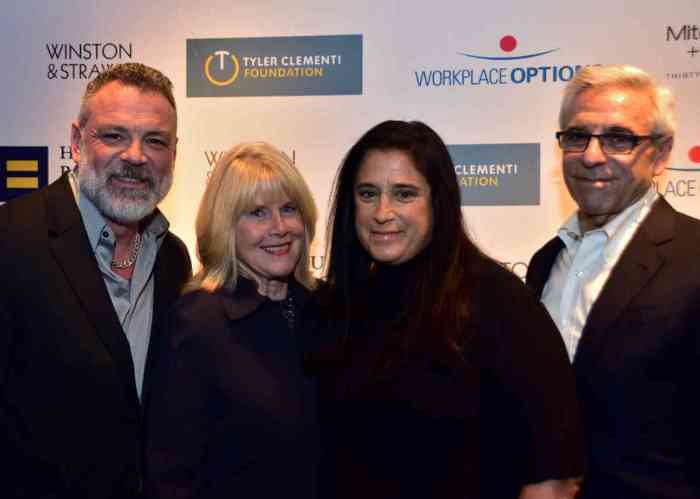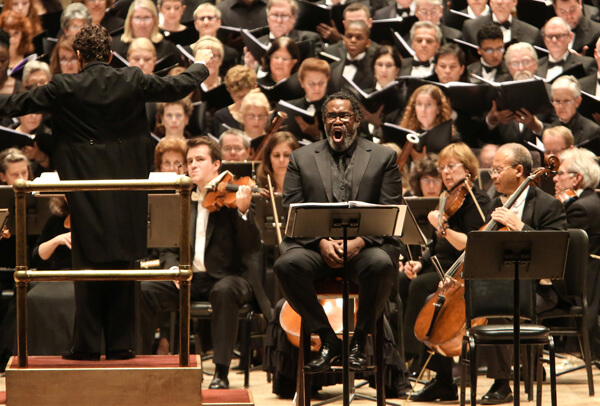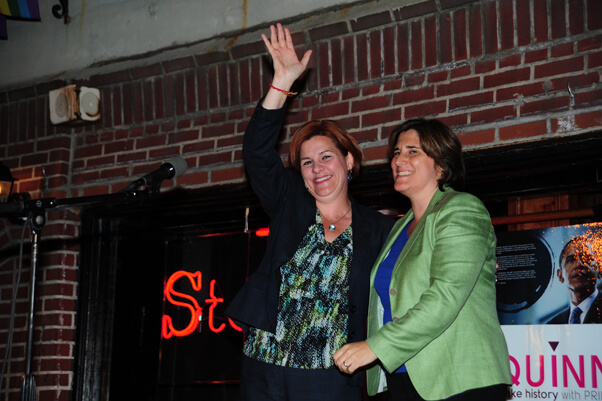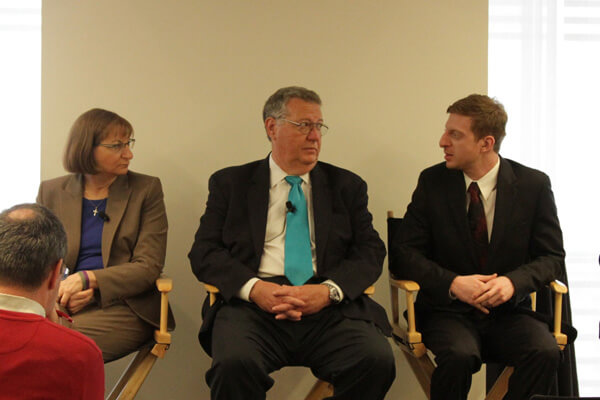Patricia, amazingly alive and vibrant at 99, was a great beauty in her days in Hollywood.
On the ninth floor of a high rise in one of the cushiest areas of Los Angeles, there resides an honest to God show business legend. At 99, Patricia Morison is amazingly alive and vibrant, with pristine recall of her storied past. And what a past: understudying Helen Hayes in “Victoria Regina” at the age of 20, signed to a Paramount contract in 1939, and subsequently appearing in films opposite Katharine Hepburn, Spencer Tracy, William Powell, Myrna Loy, John Garfield, and Deanna Durbin. In 1948, she starred in the original production of Cole Porter’s greatest show, “Kiss Me, Kate”, and followed that up with “The King and I” opposite Yul Brynner.
I thought of Morison when I heard that “Song of Norway,” one of Morison’s favorite shows, will be done at Carnegie Hall by the Collegiate Chorale on April 30 (6:30 p.m.; collegiatechorale.org).
Patricia Morison shares her incredible life; John Irving and Jane Clementi, both parents of gays
“I first did it in Auckland, New Zealand, back when that country was not very well known,” she told me. “In order to get there, the plane had to make so many stops! It was a wonderful experience and I loved playing the prima donna who accompanies [Edvard] Grieg to Italy. A lot of fun. I had a wonderful song, ‘Now, now, not tomorrow but now.” I wonder who’s going to play the prima donna?” (The answer to Morison’s question is Judy Kaye.)
Although one of the great beauties of her time — with long raven tresses, huge limpid eyes, and the kind of luscious natural mouth that makes thin-lipped unfortunates scream for collagen — Hollywood never knew quite what to do with her. She was inevitably cast as a slinky villainess, the epitome of Sondheim’s “sloe-eyed vamp.” Her big break could have been in the classic film noir “Kiss of Death” (1947), but it was unfortunately stymied. Years before, she had been replaced by Susan Hayward in “Beau Geste,” and then by Veronica Lake in “The Glass Key” “because I was too tall for Alan Ladd.”
“Honey,” she said — using this preface with the perfect been-around-the-block, wised-up inflection that calls up whole histories of Tinseltown and Broadway — “I was supposed to be the wife of Victor Mature. He’s sent up the river and I have a baby and it was one of the few roles where I was not glamorous. Just an Italian girl with a baby, and we shot it on location in Little Italy. He gets a henchman to look after me and the guy rapes me, and afterwards I’m so ashamed that I shut the kitchen windows and turn on the oven and commit suicide. I still have the telegram from [producer Darryl] Zanuck saying, ‘Pat, this could be an Academy Award.’
“But the censors would not allow a rape or a suicide to be shown, so the entire thing was cut out. I eventually got over it, but I enjoyed doing it because it was so entirely different for me as an actress. They shot me carrying the baby, going into the Italian grocery to buy cheese, all done at night. It was a lot of fun.”
Morison said working for Zanuck was fine, although he would have liked to have gotten her into bed “because he did that with most of his actresses.” In the course of our long conversation this became a leitmotif, with the actress tossing off the spurned advances of Rudy Vallee, John Garfield, and more, with a chuckling “That’s par for the course. When you’ve been around as long as I have, you get used to that.”
Zsa Zsa Garbor was always trying to set her up with men and, finally, in frustration, told a mutual friend, “You know vat’s wrong with Pat? She has no initiative!” Morison never married, but said, “I came close. Not that I haven’t had love in my life, nobody well known. But I chose my own romances and was very fortunate with my relationships with lovely, interesting people.”
“I Hate Men,” of course, was Morison’s big song in “Kiss Me Kate”: “My agent, Wynn Roccamora, said, ‘I’m taking you out to Cole Porter’s house in Brentwood. It’s not for anything, I just want you to get used to singing for people. Cole had two pianos in his living room because he liked to play classical music with friends, and I sang for him. He handed me the score of ‘Kiss Me Kate’ and said, ‘I want you to learn this and come back and sing it for me.’
“He was having a hard time raising money because all his friends thought a musical of Shakespeare would flop. I had just signed to do one of the first TV series, “The Cases of Eddie Drake,” but I went to New York and sang for the producers at the Century Theater. They didn’t want me because they had an opera star, Jarmila Novotna, in mind, but [writer] Bella Spewack loved me, so they called me back from the coast.
“When we were rehearsing ‘I Hate Men,’ the director [John C. Wilson] said, ‘You gotta get Cole to take that number out because it’s gonna make you look so bad.’ I went to Cole and he said, ‘Honey, there’s an operetta by Victor Herbert in which a guy sings “I want what I want when I want it!” and bangs a tankard on the table.’ ‘You just use that tankard,’ and, of course, on opening night in Philadelphia, we didn’t know what we had. We thought if we got good personal reviews, we were lucky. When I went out to do that song, I was scared to death, and it stopped the show! See how lucky I’ve been?”
Early on, during “The King and I,” Morison was having lunch with Richard Rodgers when a friend came up and asked, “So how did your audition go?” Rodgers said, “Miss Morison does not audition.”
“Wasn’t that wonderful? Honey, I had heard all the rumors about Yul Brynner, that he had a telephone in his dressing room and would call Joan Crawford in Hollywood and sometimes after the last show on Saturday night would fly out to Hollywood and come back just to do the Monday performance. Joan, Marlene, honey, a lot!
“I was rehearsing when he came back from vacation, and the day before I went in the show, he shows up dressed in black leather and started doing all these acrobatic things. He said, ‘We’re going to start working on Monday, so I’d like to take you to dinner.’ I said, ‘No thank you.’ ‘Then would you stop by my dressing room on your way out?’ So I knocked on the door, he said, ‘Come in,’ and he was sitting in front of his mirror, completely nude. I didn’t take my eyes off his face and said, ‘You wish to speak to me, Mr. Brynner?’ He got embarrassed and said, ‘You know, I have to stay in my body.’ ‘I understand Mr. Brynner.’
“It started that way but we ended the best of friends because he was such a true professional. You’re doing seven performances a week of this strenuous show all over the country for years, and sometimes he’d be naughty and come off the stage with a sort of guilty look on his face and I’d go, ‘Uh huh.”
“[Costume designer] Irene Sharaff was a stickler for authenticity. For hoopskirts, they usually used plastic hoops that don’t weigh anything and are always wrong onstage because they don’t stay still. She made mine out of bamboo with all kinds of weights on them so they would stay still and move with you. My skirt was too big for the dressing room doors so we had a makeshift bunch of flats with a platform. They’d lay the gown on the floor, I’d put a towel around my waist and then the Merry Widow corset, then the pantalettes. I’d step into the gown and it took two people to hold it up while another one hooked me in it.
“Once in it, I was stuck and halfway through the show comes a time when you have to go to the bathroom. Someone had given me a silver ice bucket with champagne for opening night so my dresser would pull the curtains of this fake dressing room and she would slide the bucket underneath me and no one would know. When the show closed, the only souvenir she wanted was that silver bucket!”
David Noh with Jane Clementi and Seven Guy, executive director of the Tyler Clementi Foundation, which aims to foster discussions about the respect and dignity due everyone in society. | EDWARD BOHAN
On April 5, I attended the New York Times GLBT & Allies Network's hosting at Sardi’s of John Irving, promoting his book “In One Person,” about a young bisexual man who falls in love with an older transgender woman. Irving’s son, Everett, is gay, but the author was at pains to make clear that the book was not about him and that he had started it before knowing about Everett’s sexuality.
Irving also stated that, although his books are rife with transgender characters, starting with Roberta Muldoon in “The World According to Garp,” he, himself, is not bisexual. He described his books as works of the imagination, especially the more violent episodes in them about which he said he imagined the worst thing that could happen and then wrote about it.
Hearing this, I could not help but turn to my tablemate, Jane Clementi, the mother of Tyler Clementi, who tragically committed suicide after being the target of Internet bullying at Rutgers in 2010. A spitting image, facially, of her son, she came across as a dignified, sweet and sensitive soul who has doubtlessly wrestled with her own demons, having struggled to accept her son in life due to her anti-homosexual fundamentalist Christian views, which she has since disavowed.
“I was thinking that very same thing,” she said, when I mentioned how she has actually experienced — not just written about — the very worst thing that could happen to her.
“You asked if it has gotten any better for me. Well, it’s really an ongoing process, and the [Tyler Clementi] Foundation [tylerclementifoundation.org] we’ve started does help keep his memory alive, as you say. It’s just not about gay bullying, however, but about creating a safe, positive environment for all people who feel they are different.
“I have met with the mother of Matthew Shepard, and that was interesting. We are, of course, in two different places in regard to what happened to us. Different circumstances, as well as the time frame. For her, it’s been what? Fourteen years. And for me, just a couple.”
Clementi has been raked over the coals in certain quarters for her treatment of her son, but I’m ready to believe in her sincerity, as she kept asking me about my own history of being bullied and encouraging me to speak out. I can recall a particularly anguished adolescent moment when I melodramatically mentioned suicide to my mother, who instantly cut me down with “Go ahead.” Luckily I had the strength and sense to bear that kind of “tough love,” but I know the pain of such moments for others. I can only imagine the pain felt by their parents in the wake of acts of total despair.
Contact David Noh at Inthenoh@aol.com follow him on Facebook and Twitter @in_the_noh and check out his blog at http://nohway.wordpress.com/.




































